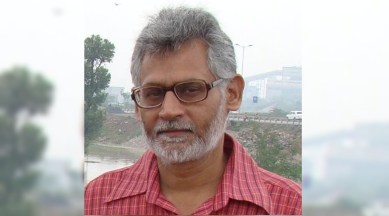Stay updated with the latest - Click here to follow us on Instagram
Manoj Misra, relentless crusader against pollution in Yamuna river, dies at 68
Misra was convener of the Yamuna Jiye Abhiyan, formed in 2007 as a group of environmental organisations working for the Yamuna.

Manoj Misra, former Indian Forest Service (IFS) officer and relentless crusader against pollution in the Yamuna who championed for protection of its floodplains, died Sunday due to Covid-related complications.
For many, Misra (68) was the patient go-to for questions on water-related issues in general and specifically, those on the Yamuna and the section of the river that flows through Delhi.
Misra was in Bhopal at the time of his demise. He is survived by his wife and daughter.
What Misra knew about the river was painstakingly gathered over decades of work on ground and with others associated with similar issues, according to his long-time friends and associates.
Manu Bhatnagar, principal director of natural heritage division at INTACH, pointed to Misra’s voice against constructions on the floodplains, including of Akshardham and structures that came up ahead of the Commonwealth Games, including a bus depot: “One of his crowning achievements was taking the matter of the Yamuna to National Green Tribunal (NGT), which brought positive orders for the river. He was also a key part of the India Rivers Week… This year, he was planning the 10th conference.”
Bhim Singh Rawat, environmentalist and associate coordinator of the South Asia Network on Dams, Rivers and People, said, “When he first began to understand the Yamuna, around 2005, there was very little talk about the floodplains which were getting encroached… He also pointed to looking at the river as a whole… he travelled its length and met people, noticing that the river had become seasonal from a perennial one, and emphasised on the significance of maintaining its flow.”
Misra was convener of the Yamuna Jiye Abhiyan, formed in 2007 as a group of environmental organisations working for the Yamuna. “He exposed me to ground realities… and different elements that are to be considered when it comes to the river’s health, like catchment, flow, and tributaries. This is a massive loss for the community…,” Rawat said.
Delhi-based environment activist Bhavreen Kandhari said, “As a forester, he had so much experience, and when he would see something, he would point it out.”
Advocate Rahul Choudhary, Misra’s lawyer in several cases including the petition before the NGT on the covering of drains, said, “Over the years, he guided us on issues of the Yamuna and its floodplains as well as other river-related cases. As of now, there is no good law regarding protection of the floodplains… we still rely on the judgments on his petitions for protection of the floodplains.”
Environmentalist Rajendra Singh said, “From 2006-2008, we worked together when we held the Yamuna bachao satyagraha. He knew the river, and was a good manager during the andolan.”
Chief Minister Arvind Kejriwal and L-G V K Saxena issued messages of condolences following news of his demise.
“V sad to hear this terrible news. I worked with him on several issues long before entering politics. He was a great person. He worked so much for Delhi’s environment…,” tweeted Kejriwal.
Saxena wrote in a tweet: “Shocked and pained at the untimely demise of Shri Manoj Misra ji. He remained a warrior for the cause of environment and a son of river Yamuna, consistently striving for her revival. His passing away leaves us bereft of a valuable fellow traveler on path of rejuvenating Yamuna.”
Water Minister Saurabh Bharadwaj tweeted that Misra “had been a guiding force for many governments and organisations for decades, including Delhi government”.
Significant petitions
In an order on Misra’s petition, the NGT had directed that the Delhi Development Authority demarcate the floodplains and prohibit constructions on it.
A principal committee was also constituted on the NGT’s order to monitor the project on cleaning and rejuvenation of the river. The committee’s approval is required for proposed projects on the floodplains. The NGT had also directed implementation of the ‘Maily Se Nirmal Yamuna Revitalisation Project, 2017’.
Misra had also filed a petition before the NGT on damage caused to the floodplains by the Art of Living Foundation for its World Culture Festival in 2016. The tribunal had then imposed an environmental compensation amount of Rs 5 crore on the foundation.